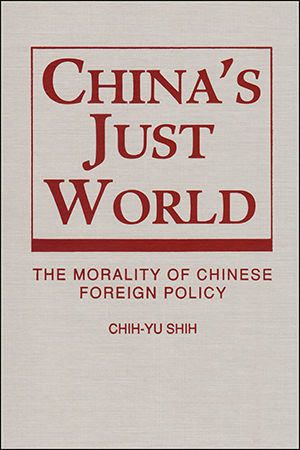
- 1993/246 pages
China's Just World:
The Morality of Chinese Foreign Policy
Shih outlines the diplomatic principles cherished by the Chinese—socialism, antihegemonism, peaceful coexistence, statism, and isolationism—and explores how each has been applied in the past forty years. He argues, for example, that China's policy toward the Soviet Union was aimed primarily at shaming the Soviets for their betrayal of socialism; its U.S. policy demonstrates China's anti-imperialist integrity; its Japan policy blames the Japanese for a failed Asiatic brotherhood; and its Third World policy is intended to be a model for emulation. The application of these principles has enabled Beijing always to find a moral niche in world affairs; the seeming contradiction among the principles has been ignored, because the need to clarify China's moral role outweighs other national interests.
This unusual perspective on China's foreign affairs also challenges the realist calculation of national interests, one couched purely in terms of military balance or economic development.







